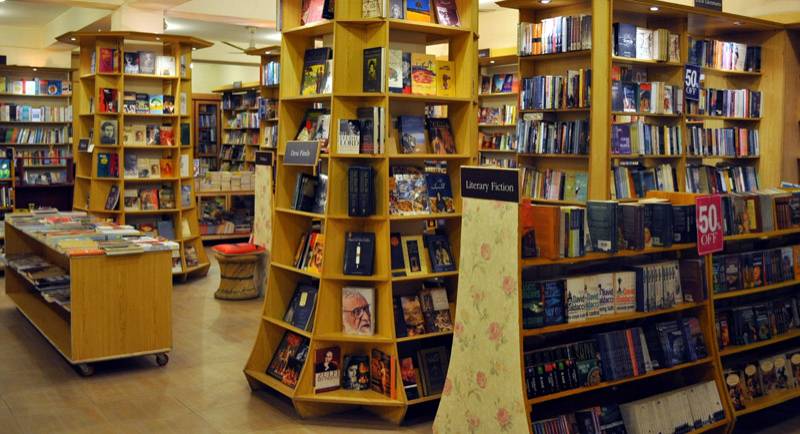
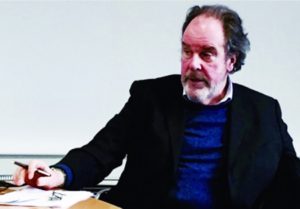
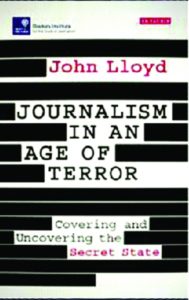
Journalism in an Age of Terror
John Lloyd
I.B. Tauris (2017)
The threat of terrorism and the increasing power of terrorist groups has prompted a rapid growth of the security services and changes in legislation, permitting the collection of communications data. This provides journalism with acute dilemmas. The media claims responsibility for holding power to account, yet cannot know more than superficial details about the newly empowered secret services. This book is the first to analyze, in the aftermath of the Snowden/NSA revelations, relations between two key institutions in the modern state: the intelligence services and the news media. It provides the answers to crucial questions including: how can power be held to account if one of the greatest state powers is secret? How far have the Snowden/NSA revelations damaged the activities of the secret services? And have governments lost all trust from journalists and the public?
John Lloyd is a Senior Research Fellow at the Reuters Institute for the Study of Journalism, a contributing editor at The Financial Times, and a columnist for both Reuters.com and La Repubblica of Rome.
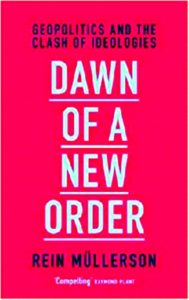
Dawn of a New Order: Geopolitics and the Clash of Ideologies
I.A. Mullerson
I.B. Tauris & Company Limited (2017)
The most significant development in global politics following the end of the bi-polar Cold War era has been the rise of a multi-polar state system. This has led to the emergence of major potential super-powers, global rivalry, international terrorism and the gradual weakening of the one remaining hegemonic, uni-polar state after the Cold War – the US. The idealistic hopes following the collapse of communism have evaporated and Cold War competition between liberal capitalism and communism has been replaced by multi-polar global rivalry that can only be resolved by a balance of power buttressed by international law. In this ambitious and thought-provoking book, Professor Rein M llerson outlines the challenges associated with the new geopolitics of the twenty-first century. Based on in-depth research over several decades it is an essential tool for understanding the new world order and the ensuing crises in global politics.
- A. Mullerson is Research Professor at the University of Tallinn. He was formerly Professor of International Law at King’s College London, UN Regional Advisor for Central Asia and a Visiting Centennial Professor at the London School of Economics and Political Science (LSE). He is the author of 12 books on international law and politics.
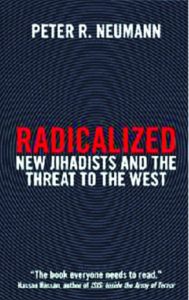
Radicalized: New Jihadists and the Threat to the West
Peter R. Neumann
I.B.Tauris (2016)
As ISIS seeks to expand its reach in the Middle East, its territory serves as a base for training and operations for a new generation of jihadis. Thousands of young people from the West, primarily from Europe, have travelled to join ISIS, re-emerging as hardened fighters with military training and a network of international contacts. Many of these have now returned to their homelands, where it is feared they are planning a new series of brutal attacks. Peter R. Neumann here explains the phenomenon of the ‘new jihadis’, and shows why the threat of terrorism in the West is greater than ever before. Based on interviews and previously-unseen material, Neumann provides an essential introduction to one of the greatest crises of our time.”
Peter R. Neumann is Professor of Security Studies at King’s College London and Director of the International Centre for the Study of Radicalisation (ICSR). He is a leading expert on terrorism and radicalization, and has advised governments and international institutions on both sides of the Atlantic. He frequently appears in the media.
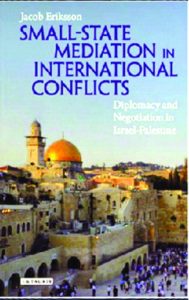
Small State Mediation in International Conflicts: Diplomacy and Negotiation in Israel-Palestine
Jacob Eriksson
I.B.Tauris (2015)
The Israeli-Palestinian conflict is one of the most prolonged, contentious and divisive in the modern era. But, despite the volatile nature of the conflict, which frequently flares up in armed confrontations between the two, such as in mid-2014, there have been advancements towards a settlement through an admittedly protracted peace process. In this book, Jacob Eriksson argues that the impact of small states, such as Sweden or Norway, should not be ignored when it comes to the ongoing efforts to negotiate between Israel and Palestine. Although small states lack coercive power, the talks they have sponsored in this particular instance (such as the Norwegian-mediated Oslo Accords) have transformed both the conflict and the conceptions of a solution to it. Of course, the diplomatic and financial power of larger states such as the USA is undoubtedly central to a negotiated solution. But by looking at conflict resolution from the perspective of the small state, Eriksson offers a unique analysis of power and diplomacy in the context of negotiations and efforts towards peace settlements.
Jacob Eriksson is Lecturer in Post-war Recovery Studies in the Post-war Reconstruction and Development Unit (PRDU) at the University of York. He holds a PhD in Near and Middle Eastern Studies from SOAS, University of London.
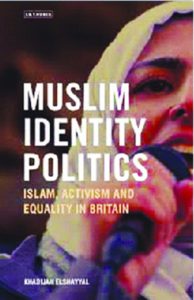
Muslim Identity Politics: Islam, Activism and Equality in Britain
Khadijah Elshayyal
I.B.Tauris (2018)
The surge in divisive and far-right politics and growing Islamophobia in Britain pose new challenges for Muslim advocacy organisations. British Muslim activism has taken centre stage in the public sphere as a result. Yet for over fifty years Muslim advocacy groups have worked to preserve religious identity, lobby the state and provide concerted responses to the political establishment.
This is the first book to chart critically the national and global factors influencing the political mobilisation of British Muslim activists as Muslims. Khadijah Elshayyal traces the changes of thought, direction and method within Muslim identity politics after 1960, noting key organisations and turning points such as the Rushdie Affair, the 9/11 attacks, the 7/7 bombings and the current conflict in Syria. The book argues that the Rushdie Affair prompted new debate around the subject of freedom of expression, which has continued to be a point of contention ever since. Providing a history of the interaction between Muslim advocacy groups and the state, and the impact of state policy on Muslim communities, Muslims Identity Politics shows that that Muslim citizens continue to experience an `equality gap’ and recommends where transformation and progress can be made. Based on primary sources and in-depth interviews, this book is a vital resource for government officials, policy-makers and researchers interested in multiculturalism, Islamophobia and security issues in Britain.
Khadijah Elshayyal is Postdoctoral Research Fellow at Edinburgh University’s Alwaleed Centre for the Study of Islam in the Contemporary World, where she also teaches courses on Islam and Muslims in Britain at undergraduate and postgraduate levels. She holds a PhD in History from Royal Holloway, University of London, and her research interests lie in the representation, political and cultural engagement of Muslims and ethnic minorities in the UK.


